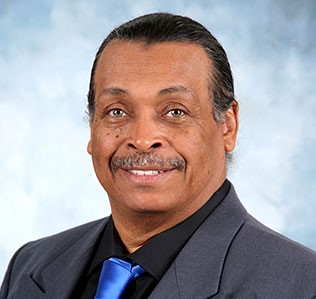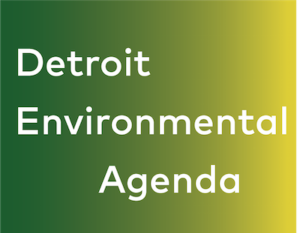William M. Davis

Q: Where can people go to learn more about your biography? If not readily available online, please describe in 150 words or less, your relevant experience, public offices held (if any), involvement in environmental causes, and membership in any environmental organizations. If you currently hold office, describe any votes or actions demonstrating concern for the environment.
A: Elected Detroit Police Commissioner District, Retired from the City of Detroit WasteWater Treatment Plant part of my job was to enforce the clean air and water regulations and ensure notification would go to the appropriate agency at the times we failed to meet standards.
Community
Q: If elected, how will you work with Detroit residents to ensure that they benefit from and partake in the decision-making surrounding local development projects and that potential adverse impacts of those projects are identified, measured, monitored and mitigated? Moreover, how would you work to put more power into the hands of residents to maintain and revitalize their own communities and to access vacant land through the DLBA?
A: I would push for greater notifications of future projects and review and share environmental assessments. I have a strong working relationship with the District 7 Citizen advisory council, Neighborhood Associations, and Block Clubs. The DLBA needs better control over its operations. I would push to downsize most of the DLBA properties and vacant lots by turning them over to local community groups and religious organizations. They will be required to maintain and oversee the properties for three years.
Q: If elected, what budget appropriations would you propose to increase investment in needed social and environmental services to help improve the quality of life and health of Detroit residents?
A: I would propose more neighborhood parks, community gardens, community health centers, recreation centers, and mental health centers.
Public Health
Q: What long term solutions do you see for addressing vehicle speeds and making our streets safer?
A: Less law enforcement Downtown, Midtown, and other public safety officers in the neighborhoods and lower police response times for priority calls.
Q: How will you work to reduce the negative health impacts of air quality on the residents of Detroit?
A: More trees lining our streets and greater enforcement of zoning regulations in residential areas.
Q: If elected, what actions will you take to work toward safer, healthier, and more affordable housing for all Detroiters?
A: Rent control, more down payment assistance for low-income homebuyers, and enhanced vouchers ( section 8) using only the city of Detroit average mean income level.
Energy
Q: What are your priorities to reduce emissions and lessen the impacts of climate change in Detroit during your term in office?
A: I would push for more solar capacity for homes and businesses with incentives for installing rooftop solar panels.
Q: What are your plans for helping the city transition to renewable energy and how will you ensure that the cost benefits and increased resilience that come from the use of renewables is made accessible to low-income and vulnerable communities across Detroit?
A: The City of Detroit should transition to more electric vehicles and add solar panels on municipal buildings and garages and start using hydropower to produce electricity and power machines, give subsidies to low-income people, and subsidies to communities that have a history of harmful contamination of air, land or water.
Recycling
Q: How can the city increase recycling, composting, and the use of post-consumer recycled materials, while addressing the city’s litter and illegal dumping problem?
A: The city can and should make it easier to recycle by educating the public on the benefits of recycling, compositing, and the use of post-consumer recycled materials on how it saves resources and reduces waste. The municipal fines are too low for littering and any business or person that engages in illegal dumping should not only pay a major fine but should also be forced to do clean-up for so many hours.
Jobs
Q: What steps would you take to prepare the local workforce to take advantage of and be part of the movement toward a green economy, through qualifying for good paying infrastructure and clean energy jobs, amongst others?
A: I would have community meetings with experts on green infrastructure and train experts on how people can be trained for good jobs and entrepreneurship in the expanding green economy.
Water
Q: How will you ensure that clean water is accessible and affordable to all Detroiters?
A: Water is a human right. Water needs to be included with electricity and natural gas federal programs for energy assistance/low income home energy assistance program (LIHEAP).
Q: How will you help municipal agencies and property owners integrate Green Stormwater Infrastructure (GSI) across the city to manage stormwater and reduce drainage charge fees for property owners?
A: We can manage more wet weather incidence by having more mini storm catch basins in parks, vacant lots, and street medium islands. Right now, the Detroit Land Bank does not pay drainage fees, some absentee landlords are not paying. Detroit Residences are 83% of the cost of the combined storm overflow facilities, though, Detroiters should be paying no more than 50% of that cost. Detroiters are paying for 100% of the cost of rainwater that comes in contact with hard surfaces on our property, yet at the most only 50% of that water can end up in storm drains.
Optional
Q: Please identify the top environmental concerns to you personally, identify the environmental issue in your community that is the most pressing, and what you would like to do as an elected official to address this most pressing concern.
A: We need more green space i.e trees and grass. Our community has too many used car lots, as your next district 7 city council person, less used car lots by enforcing better zoning and pushing for fresh food markets and farmers markets.

